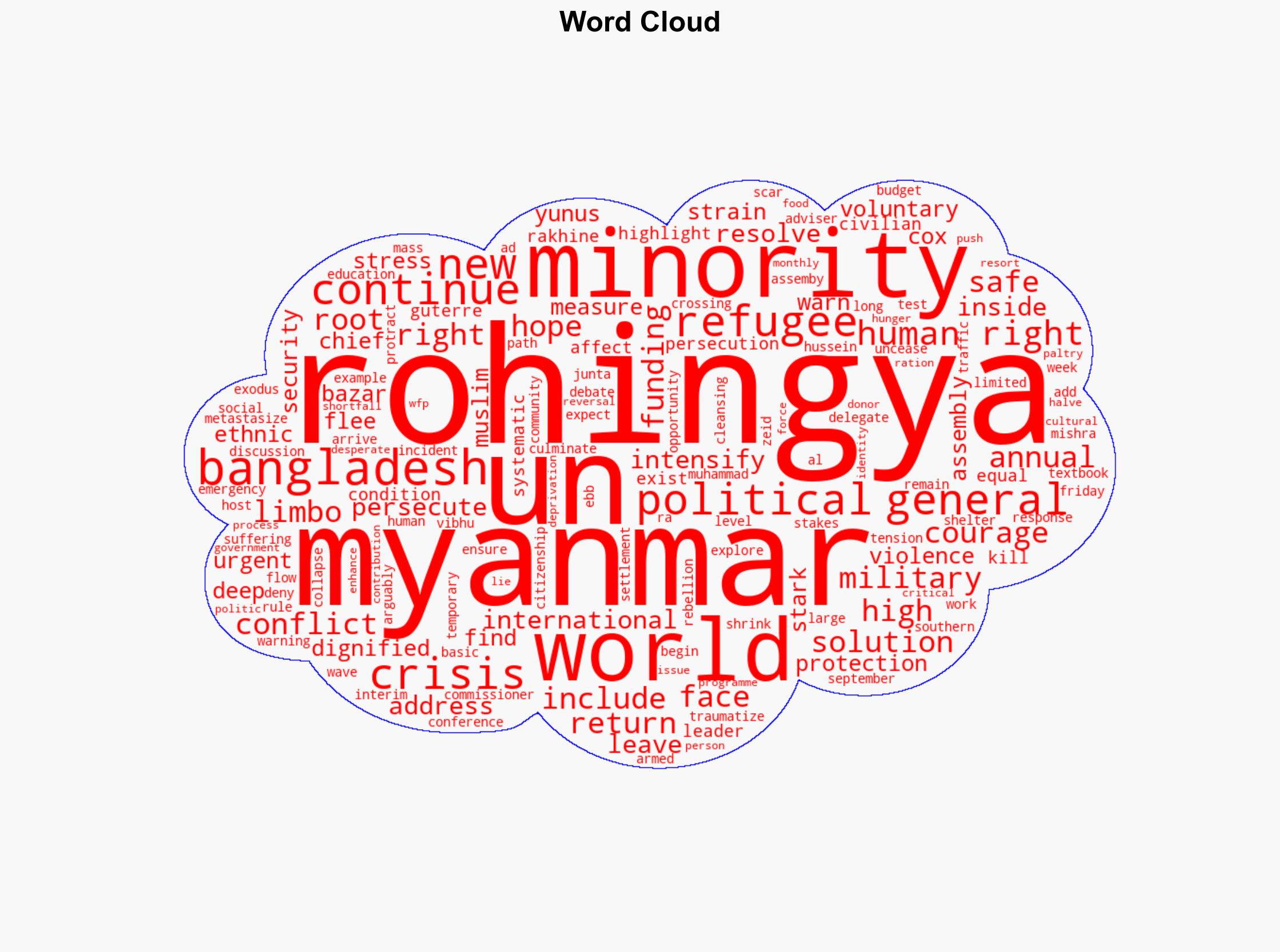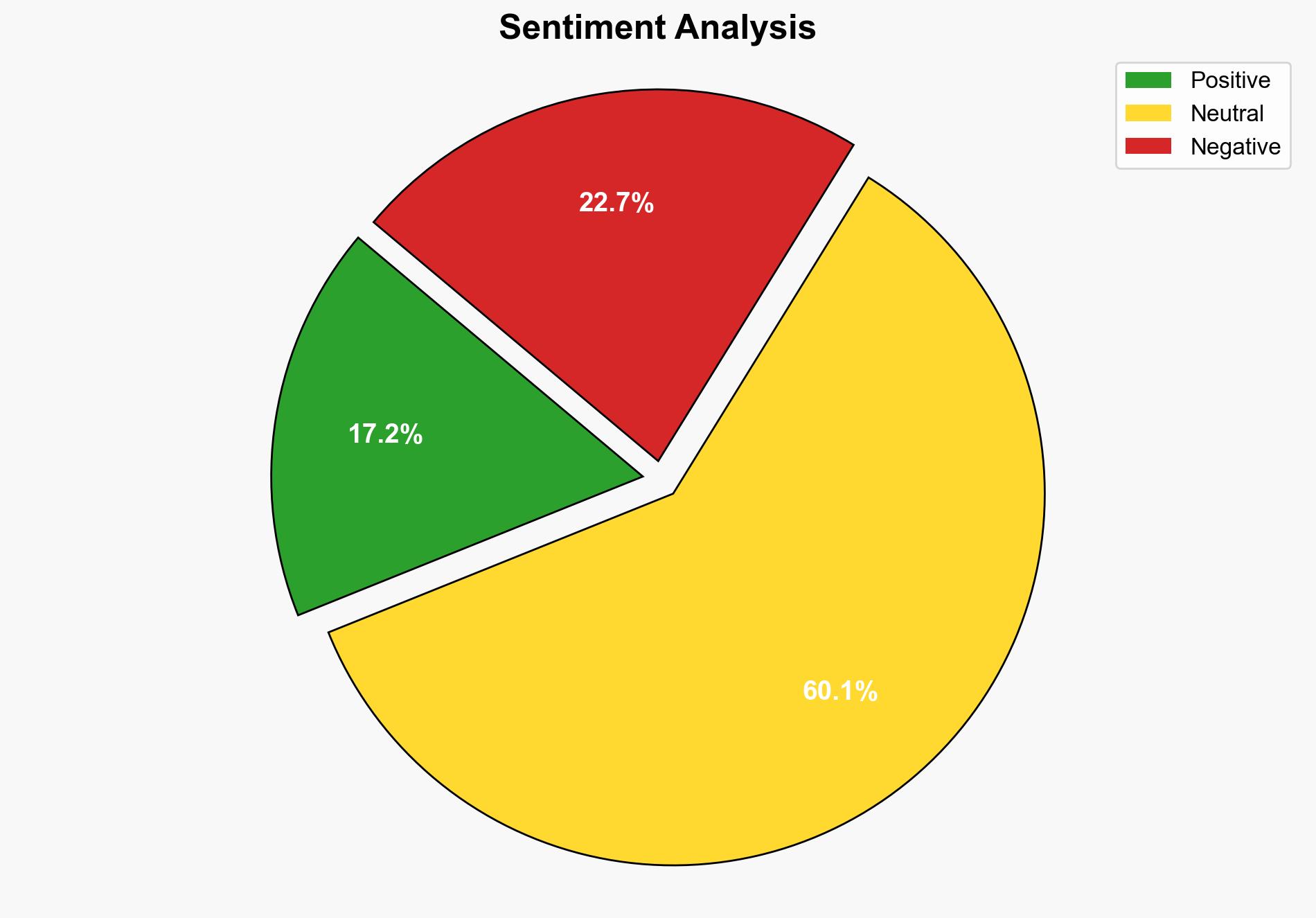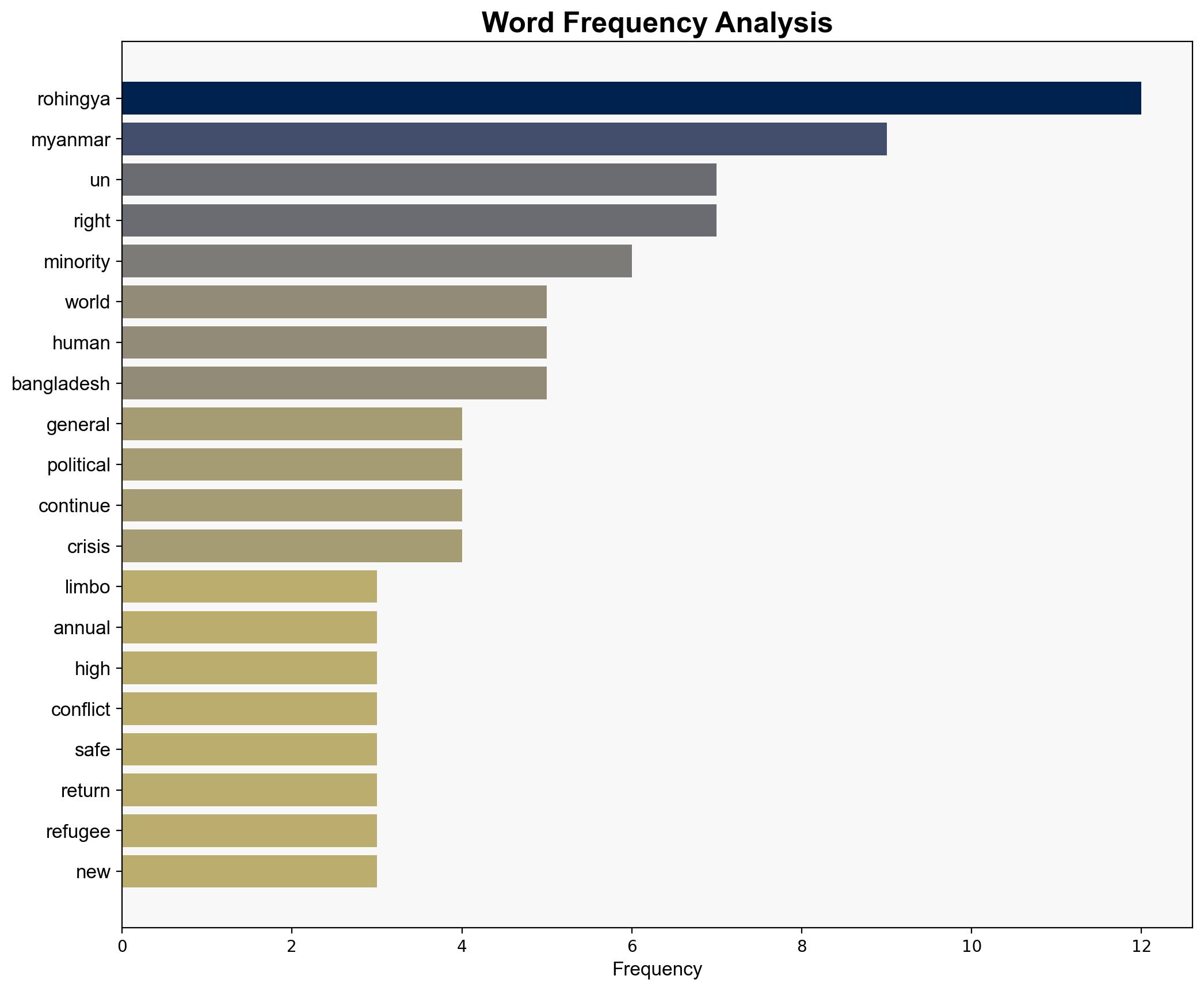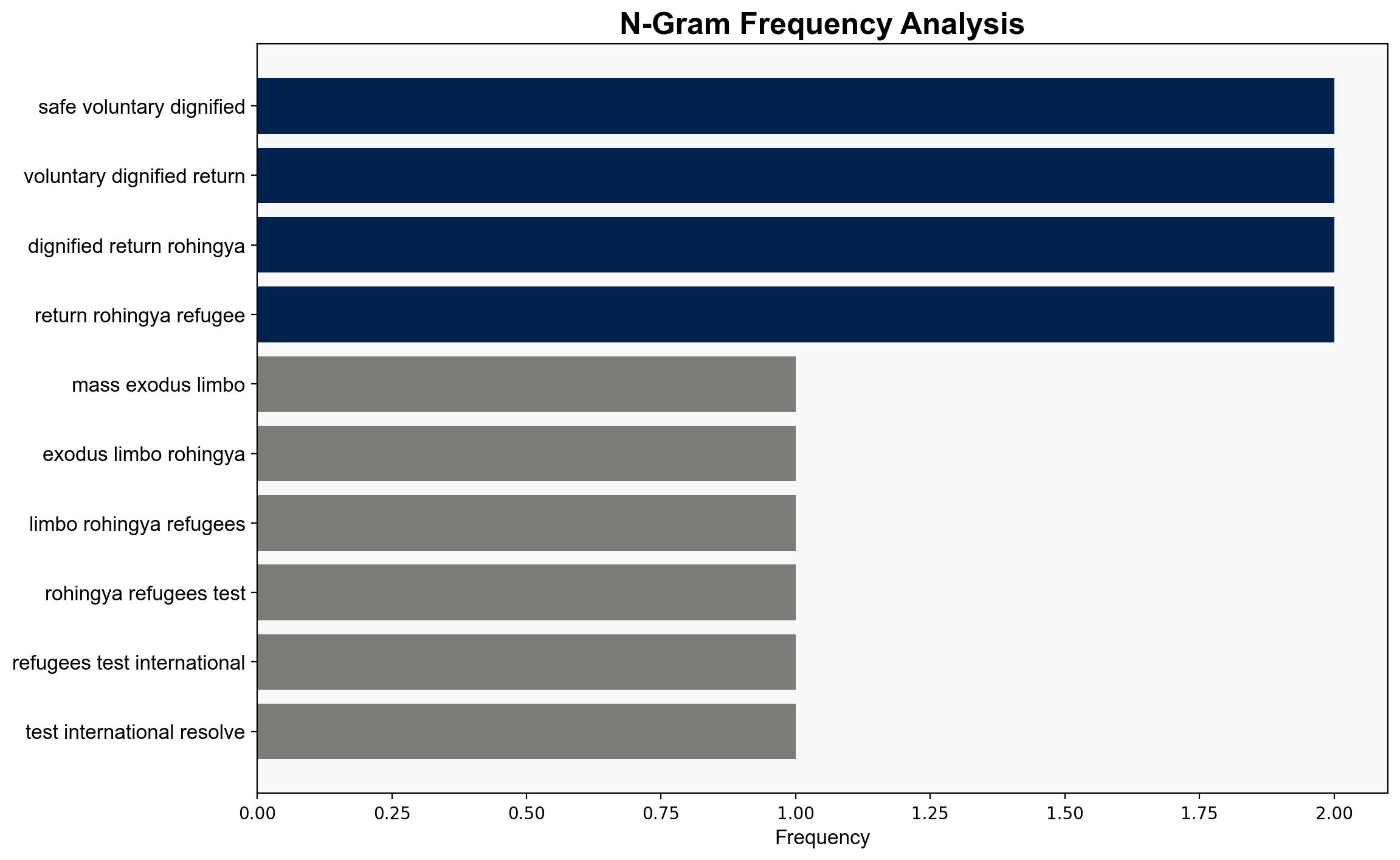After mass exodus limbo Rohingya refugees test international resolve – Globalsecurity.org
Published on: 2025-09-30
Intelligence Report: After mass exodus limbo Rohingya refugees test international resolve – Globalsecurity.org
1. BLUF (Bottom Line Up Front)
The Rohingya crisis remains unresolved, testing international resolve and highlighting geopolitical paralysis. The most supported hypothesis is that without significant international intervention, the situation will deteriorate further, exacerbating regional instability. Confidence Level: Moderate. Recommended action includes increased diplomatic pressure on Myanmar and enhanced support for Bangladesh to manage the refugee situation.
2. Competing Hypotheses
1. **Hypothesis A**: The international community will successfully pressure Myanmar into creating conditions for the safe, voluntary, and dignified return of Rohingya refugees. This would involve significant diplomatic efforts and potential sanctions.
2. **Hypothesis B**: Myanmar will continue its current trajectory of ethnic persecution, and the international community will fail to implement effective measures, resulting in prolonged regional instability and humanitarian crisis.
Using ACH 2.0, Hypothesis B is more supported due to historical patterns of Myanmar’s resistance to international pressure and the current geopolitical paralysis.
3. Key Assumptions and Red Flags
– **Assumptions**:
– Hypothesis A assumes that international diplomatic efforts can overcome Myanmar’s military junta’s resistance.
– Hypothesis B assumes that Myanmar’s internal politics will continue to prioritize ethnic dominance over international pressure.
– **Red Flags**:
– Myanmar’s military junta’s history of ignoring international norms.
– Potential underestimation of regional actors’ influence, such as China or ASEAN.
– Lack of comprehensive data on the current humanitarian conditions in refugee camps.
4. Implications and Strategic Risks
– **Regional Instability**: Prolonged refugee presence in Bangladesh could strain resources, leading to increased tensions and potential conflict with host communities.
– **Geopolitical Tensions**: Failure to resolve the crisis may embolden other authoritarian regimes, undermining international human rights standards.
– **Humanitarian Crisis**: Continued deprivation could lead to radicalization or increased crime as refugees resort to desperate measures.
5. Recommendations and Outlook
- **Diplomatic Engagement**: Intensify diplomatic efforts with ASEAN and China to leverage regional influence on Myanmar.
- **Humanitarian Support**: Increase funding and logistical support for Bangladesh to manage the refugee crisis effectively.
- **Scenario Projections**:
– **Best Case**: Myanmar agrees to international terms for Rohingya repatriation.
– **Worst Case**: Escalation of violence in Myanmar, leading to further displacement.
– **Most Likely**: Continued stalemate with incremental international aid improvements.
6. Key Individuals and Entities
– **Antonio Guterres**: Highlighted the need for international support and resolution.
– **Muhammad Yunus**: Warned of the potential collapse of support systems in Bangladesh.
– **Tom Andrews**: Emphasized the human rights violations in Myanmar.
7. Thematic Tags
national security threats, humanitarian crisis, regional stability, international diplomacy





